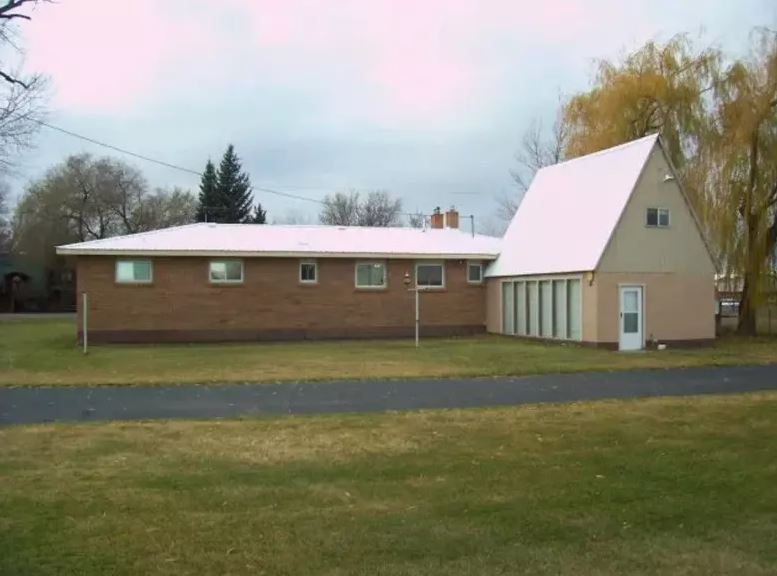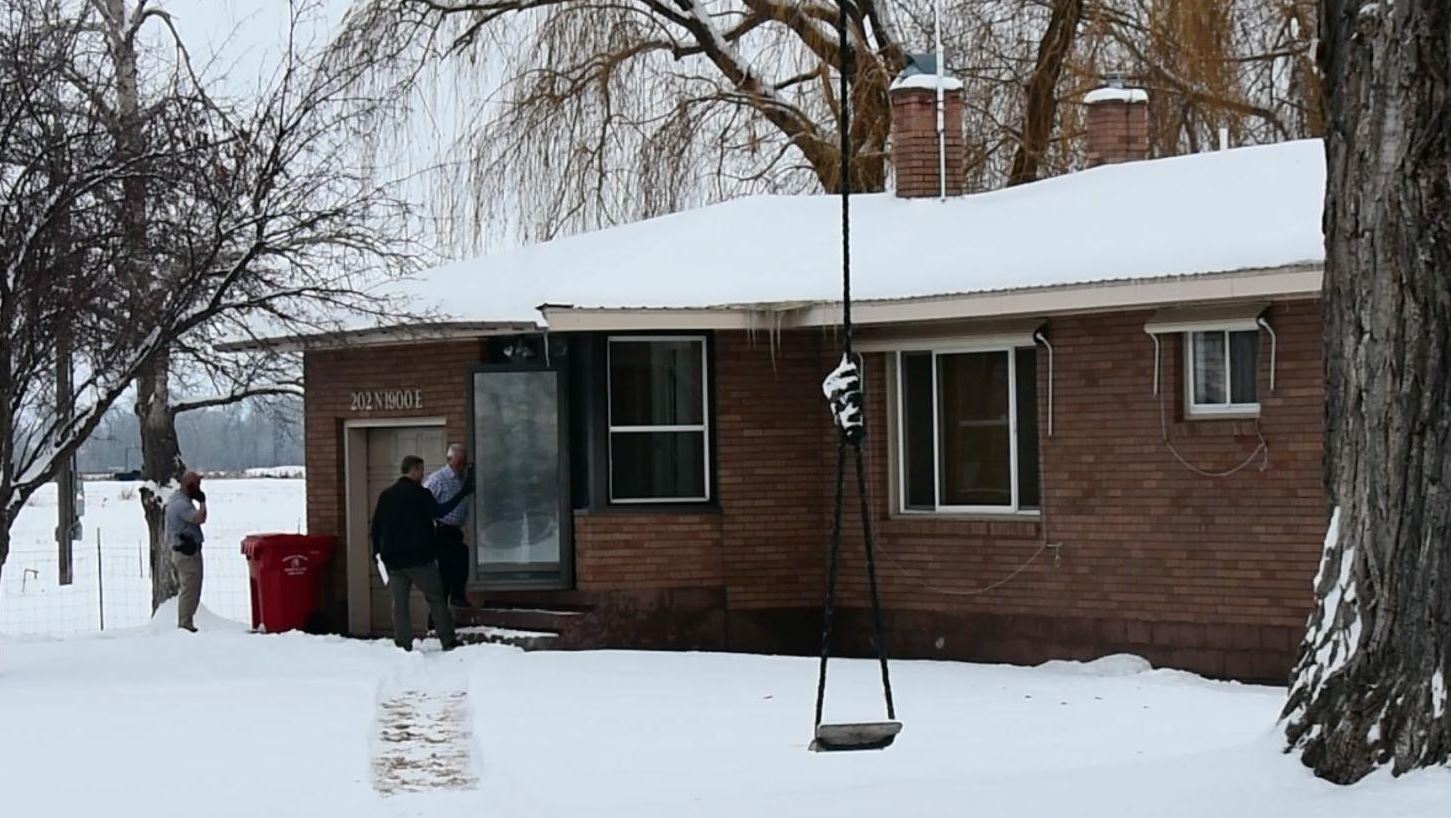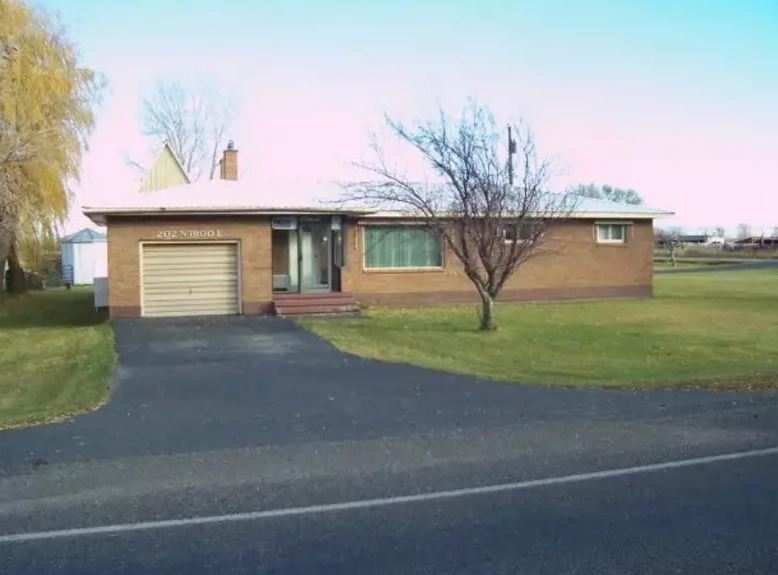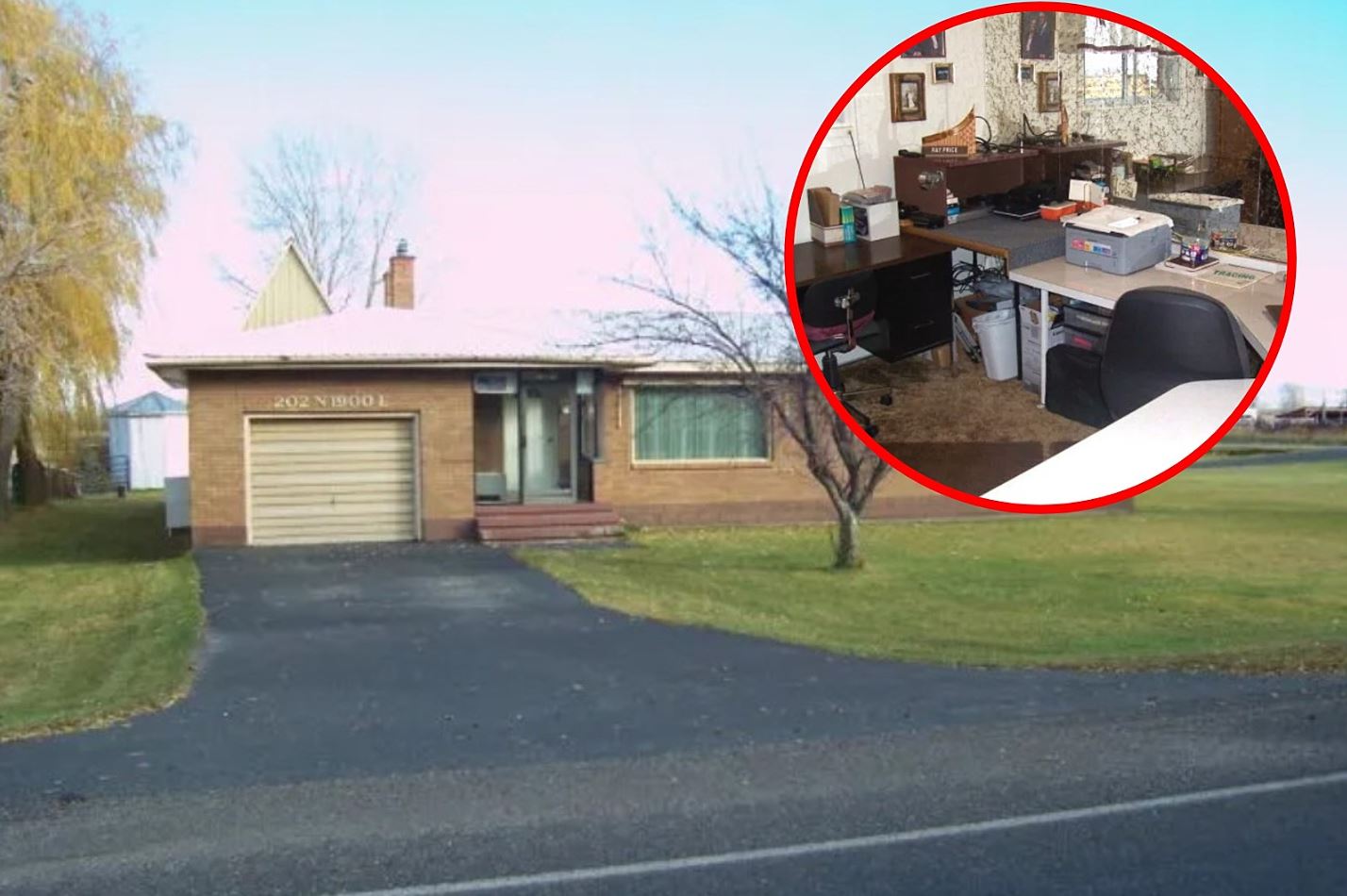A Legal, Ethical, and Market Analysis of Chad Daybell’s House
In the quiet town of Rexburg, Idaho, a seemingly ordinary ranch house, known as Chad Daybell’s house, became the center of national attention following a chilling discovery. The home, once the residence of Lori Vallow Daybell and her husband, Chad Daybell, a Mormon doomsday author, transformed into a site of tragic revelations in June 2020. It was here that authorities unearthed the bodies of Vallow Daybell’s children, 17-year-old Tylee Ryan and 7-year-old Joshua ‘JJ’ Vallow, buried in the backyard, marking a grim conclusion to their months-long disappearance.
The ownership of this property, now under the name of Chad Daybell’s attorney, John J. Prior, through a quitclaim deed, adds another layer of controversy to an already convoluted narrative. This transfer occurred shortly after Daybell’s prior wife’s suspicious death and his subsequent, swift remarriage to Vallow Daybell, who herself had lost previous spouses under mysterious circumstances. The real estate transaction is speculated to be a maneuver to finance Daybell’s legal defense or to shield the property from potential creditors and legal claims amidst the mounting criminal charges against him.
This case has captured the attention of the public not only due to the heinous nature of the crimes but also because of the bizarre beliefs and behaviors reported around Lori Vallow Daybell and Chad Daybell, which include predictions of apocalyptic events and claims of divine visions. The legal and ethical implications surrounding the property’s ownership post-trial, and its potential future, continue to evoke discussions and debates, reflecting a saga that has far-reaching impacts beyond the boundaries of the small Idaho community.
| Aspect | Details |
|---|---|
| Background and Events | The house in Rexburg, Idaho, became nationally known when the bodies of Lori Vallow Daybell’s children were discovered buried in the backyard in June 2020. The children had been missing for months prior to the discovery. |
| Ownership and Legal Maneuvers | Ownership of the property was transferred to Chad Daybell’s attorney, John J. Prior, via a quitclaim deed. This move is speculated to be related to financing Daybell’s legal defense or protecting the property from creditors amid criminal charges against him. |
| Notable Personalities | Chad Daybell, a Mormon doomsday author, and Lori Vallow Daybell, who has a history of mysterious deaths of previous spouses, are central figures in the case, known for their bizarre apocalyptic beliefs and behaviors. |
| Public Interest and Impact | The case has garnered significant media attention due to its heinous nature, the mysterious and suspicious preceding events, and the unusual beliefs of the involved parties. It has sparked widespread discussion and debate. |
| Future of the Property | The legal and ethical implications regarding the future of the property post-trial continue to be a topic of interest, reflecting the case’s far-reaching impact beyond Rexburg. |
Contents
Background of the Property and Its Infamy
Nestled in the outskirts of Rexburg, Idaho, a four-bedroom ranch-style house on a 3.75-acre lot stands as a grim landmark in an otherwise peaceful, agricultural community. This property, once a typical family home, is now infamously linked to one of the most unsettling criminal cases in recent memory. In June 2020, it became the site where the bodies of Tylee Ryan, aged 17, and her seven-year-old brother, Joshua “JJ” Vallow, were discovered buried in the backyard. Their mother, Lori Vallow Daybell, and her fifth husband, Chad Daybell, were implicated in a saga that had gripped the nation with its layers of mystery, alleged cult-like religious beliefs, and a string of suspicious deaths.

The property’s journey into the public eye began months earlier when the children were reported missing by their grandparents. What followed was an extensive search that led investigators to the Daybells’ home in Idaho, where the tragic truth was unearthed. The discovery not only confirmed the worst fears about the children’s fate but also cast a shadow over the Daybell residence, marking it as a place of horrific acts.
Both Lori Vallow Daybell and Chad Daybell faced intense legal scrutiny following these discoveries. Lori was charged with multiple counts, including conspiracy and murder, in connection to the deaths of her children and the suspicious circumstances surrounding the demise of Chad’s previous wife, Tammy Daybell. Chad also faced charges related to the deaths and other alleged plots. The legal battles, filled with bizarre claims of apocalyptic beliefs and attempts to rid their lives of supposed zombies, added layers of complexity and notoriety to the property at the center of these events.
| Aspect | Details |
|---|---|
| Property Description | A four-bedroom ranch-style house on a 3.75-acre lot located on the outskirts of Rexburg, Idaho. Previously a typical family home, it is now known for its tragic association with a high-profile criminal case. |
| Discovery of Tragedy | In June 2020, the property became the site where the bodies of Tylee Ryan and her brother Joshua “JJ” Vallow were discovered buried in the backyard, marking a grim end to their disappearance saga. |
| Legal and Criminal Implications | Lori Vallow Daybell and Chad Daybell, the residents, were implicated in the deaths. Charges against them include conspiracy and murder related to the children’s deaths and suspicious circumstances around the demise of Chad’s previous wife, Tammy Daybell. |
| Bizarre Claims and Public Interest | The case is noted for its bizarre elements, including claims of apocalyptic beliefs and attempts to rid their lives of supposed zombies, capturing widespread media attention and public interest. |
| Impact on Property | The house’s notoriety due to these events has cast a shadow over it, transforming it from a family home into a landmark of horrific acts, impacting its legacy and how it is perceived by the community. |
Legal Controversies Surrounding the Property Transfer
The transfer of this notorious property added another layer of controversy. In May 2021, amidst ongoing legal proceedings, Chad Daybell executed a quitclaim deed transferring ownership of the home to his attorney, John J. Prior. This type of deed is simple and transfers whatever interest the grantor has in the property without any warranties of clear title. Such transfers are not uncommon in legal strategies, often used to pay for hefty legal defenses or protect assets from potential claims or creditors.
However, this particular transfer raised eyebrows for several reasons. Firstly, the timing and nature of the quitclaim deed, coming after high-profile criminal charges, suggested it might be a move to shield the property from being seized or used to satisfy potential judgments. Secondly, the legal implications of transferring property under these circumstances can be complex. It poses a risk of being contested by creditors or other parties who might claim that the transfer was done to defraud them.

Furthermore, the ethical concerns surrounding such a transfer are significant. Legal professionals often debate the morality and legality of accepting property as payment, especially under potentially fraudulent circumstances. Critics argue that it could reflect poorly on the legal profession, suggesting a willingness to partake in questionable practices for financial gain.
Adding to the controversy is the background of attorney John J. Prior himself. Known for previous legal troubles, Prior had faced accusations and legal action over alleged misconduct in his practice years earlier. This history, combined with his acceptance of the property transfer, paints a complex picture of the legal entanglements and ethical dilemmas inherent in high-profile criminal defense.
The transaction and the histories of those involved have thus woven a complicated tapestry around the Rexburg property. Its infamy, tied not only to the tragic and disturbing events that occurred there but also to the subsequent legal and ethical questions, continues to resonate, highlighting the often murky intersection of law, morality, and personal tragedy in the criminal justice system.
| Aspect | Details |
|---|---|
| Quitclaim Deed Transfer | In May 2021, amidst legal proceedings, Chad Daybell transferred ownership of the property to his attorney, John J. Prior, via a quitclaim deed, which transfers the grantor’s interests without warranties of clear title. |
| Timing and Motivation | The timing of the transfer—following serious criminal charges—suggests a strategy to protect the property from seizure or to satisfy potential judgments, raising questions about the intent and legality of the transaction. |
| Legal and Ethical Concerns | The transfer poses risks of being contested by creditors or parties claiming fraud. It also raises ethical concerns about accepting property as payment under questionable circumstances, which could tarnish the legal profession’s reputation. |
| Attorney’s Background | John J. Prior, known for prior legal troubles including accusations of misconduct, accepted the property transfer, adding layers of complexity and controversy to the legal defense and the case’s public perception. |
| Overall Impact | The transaction and the involved parties’ backgrounds contribute to ongoing debates and discussions about the intersections of law, morality, and justice, reflecting the case’s broader implications on legal and ethical standards. |
Market Impact and Stigmatized Properties
The real estate market’s reaction to properties with dark histories, known as stigmatized properties, is uniquely complex and fraught with challenges. According to experts like Randall Bell, who specializes in appraising properties where notorious crimes have occurred, these homes often face significant hurdles in valuation and saleability. Bell’s experience includes appraisals of homes like that of JonBenét Ramsey and the Heaven’s Gate mass suicide site. Such properties usually sell at a discount due to the negative associations that deter typical buyers.
For the Daybell property in Rexburg, Idaho, the situation is particularly challenging. The discovery of the bodies of Tylee Ryan and Joshua “JJ” Vallow on the premises has indelibly marked the property, placing it firmly within the category of stigmatized real estate. The market value of such a property is affected by several factors: the nature of the crimes, the media coverage, and the community’s reaction, all of which can lead to a decrease in potential buyer interest. Bell suggests that properties like the Daybell home could see market values decrease by 10% to 25% compared to similar, unstigmatized properties.

Further complicating the situation is the property’s location in a rural setting, which, according to Bell, tends to fare worse in recovering value post-crime than suburban or urban counterparts. This is partly because rural areas, generally having fewer potential buyers, find even fewer who are willing to overlook a tragic past for a discount.
| Aspect | Details |
|---|---|
| Stigmatized Properties | Properties where notorious crimes have occurred, such as the Daybell home, are considered stigmatized. These properties often sell at a discount due to the negative associations that deter typical buyers. |
| Market Value Impact | The market value of stigmatized properties like the Daybell home can decrease by 10% to 25% compared to similar unstigmatized properties, influenced by the nature of the crimes, media coverage, and community reaction. |
| Challenges in Saleability | These properties face significant hurdles in valuation and saleability, with potential buyers often deterred by the property’s dark history. This is particularly pronounced in homes where high-profile crimes have occurred. |
| Rural vs. Urban Recovery | Stigmatized properties in rural settings, like the Daybell property, tend to fare worse in recovering value post-crime compared to their suburban or urban counterparts due to fewer potential buyers in rural areas. |
Future Scenarios and Ethical Dilemmas
As for the future of the Daybell property, now owned by Chad Daybell’s attorney, John J. Prior, several scenarios could unfold. The new ownership might decide to retain the property, possibly using it for purposes other than a residence. Alternatively, the attorney could attempt to sell the property. If a sale is pursued, potential buyers might range from those intrigued by its infamy to others who see value in the land independent of its tragic history.
The ethical considerations surrounding the property’s ownership and eventual sale are significant. One primary concern is the surplus value of the property relative to the legal fees incurred by Chad Daybell. If the property’s value exceeds the cost of Daybell’s defense, ethical questions arise about the attorney’s obligation to return the excess to Daybell or his estate. This situation is complicated by the nature of the property’s acquisition and the attorney’s role as both legal counsel and property owner.

Moreover, there are broader implications to consider regarding the sale and ownership of a property with such a tragic past. For instance, should the new owner disclose the property’s history to potential buyers? While laws vary by state, ethical real estate practice generally favors full disclosure, ensuring that buyers are fully informed about the property’s past, which could significantly affect their decision to purchase.
Additionally, there’s the matter of community impact. Owning and potentially profiting from a property where children were found buried can be seen as morally questionable. It raises concerns about the commodification of tragedy and the potential for “crime tourism,” where sites of infamous crimes attract visitors. This not only could disrupt the local community but also raises ethical questions about the normalization and exploitation of crime scenes.
In conclusion, the future of the Daybell property, like many stigmatized properties, involves a complex interplay of market dynamics, legal strategies, and ethical considerations. The decisions made by the current and future owners will likely be scrutinized within the context of broader societal norms and the deep-seated human reaction to places marred by tragedy.
| Aspect | Details |
|---|---|
| Potential Future Uses | The property could be retained by the current owner, John J. Prior, for uses other than a residence, or it could be sold. Potential buyers might include those intrigued by its history or those interested in the land itself, regardless of its past. |
| Ethical Considerations in Sale | If the property’s value exceeds the legal fees, ethical questions arise about the attorney’s duty to return any excess to Daybell or his estate. Additionally, full disclosure of the property’s tragic history is ethically favored to ensure informed buyer decisions. |
| Community Impact and Moral Questions | Owning and profiting from a property with such a notorious past raises moral questions about the commodification of tragedy and the potential for “crime tourism,” which can disrupt local communities and normalize crime scenes. |
| Legal and Societal Scrutiny | The decisions made regarding the property will likely be scrutinized against broader societal norms and ethics, reflecting the deep-seated human response to places associated with tragedy. |
The case surrounding the Daybell property in Rexburg, Idaho, encapsulates a profound and unsettling fusion of criminal law, ethical dilemmas, and real estate challenges. This property, marked by the tragic discovery of the bodies of Tylee Ryan and Joshua “JJ” Vallow, has transitioned from a private residence into a symbol of criminal infamy, embodying the deep scars that such events leave on a community and the physical spaces they inhabit.
Reflecting on the intersection of law, ethics, and real estate, the Daybell case offers a compelling study of how high-profile criminal cases disrupt not just the lives directly involved but also penetrate deeper into societal norms and market dynamics. Legal professionals and ethicists face tough questions about the appropriateness of certain defenses and the moral implications of financial transactions involving tainted properties. Meanwhile, real estate professionals must navigate the delicate task of handling properties that, while legally sellable, carry burdensome legacies that can deter potential buyers.
The potential future of the Daybell property remains uncertain and laden with complexity. If retained by the current owner, the property might never shed its association with the tragic events, continually impacting the surrounding community’s perception and the overall atmosphere of the locale. If put on the market, the process of selling could reopen emotional wounds for the community and the victims’ families, reminding them of the crimes committed. Furthermore, any financial gain from such a sale could be viewed as profiting from tragedy, an aspect that sits uncomfortably within ethical discussions.
For the community of Rexburg and similar locales affected by such profound tragedies, the path to healing is often long and fraught with reminders of the past. The presence of a property like the Daybell home serves as a tangible reminder of the events that unfolded. It challenges the community’s resilience and ability to move forward while respecting and remembering the victims.
In conclusion, the Daybell property stands as a stark reminder of the intricate and often painful interplay between crime, legal action, and societal impact. As this case continues to unfold, it will likely serve as a reference point for discussions on how to handle properties affected by criminal actions ethically and sensitively, ensuring that the memories of those affected are honored and that communities can find pathways to recovery and peace.
VIP Real Estate -Where Does Deion Sanders Lives in Boulder New Colorado
Deion Sanders Mississippi House for Sale in Colorado
The Mega Purchase at the Rick Ross House Address Atlanta
Djimon Hounsou House Puts His Westchester CA Home Up
Drizzy Potential Texan Mansions at Drake’s House in Houston
A Rock Star’s Paradise at the Dusty Hill House for $4.5M
Ed Cooley’s Home for Sale $1.9M as He Moves to Coach
